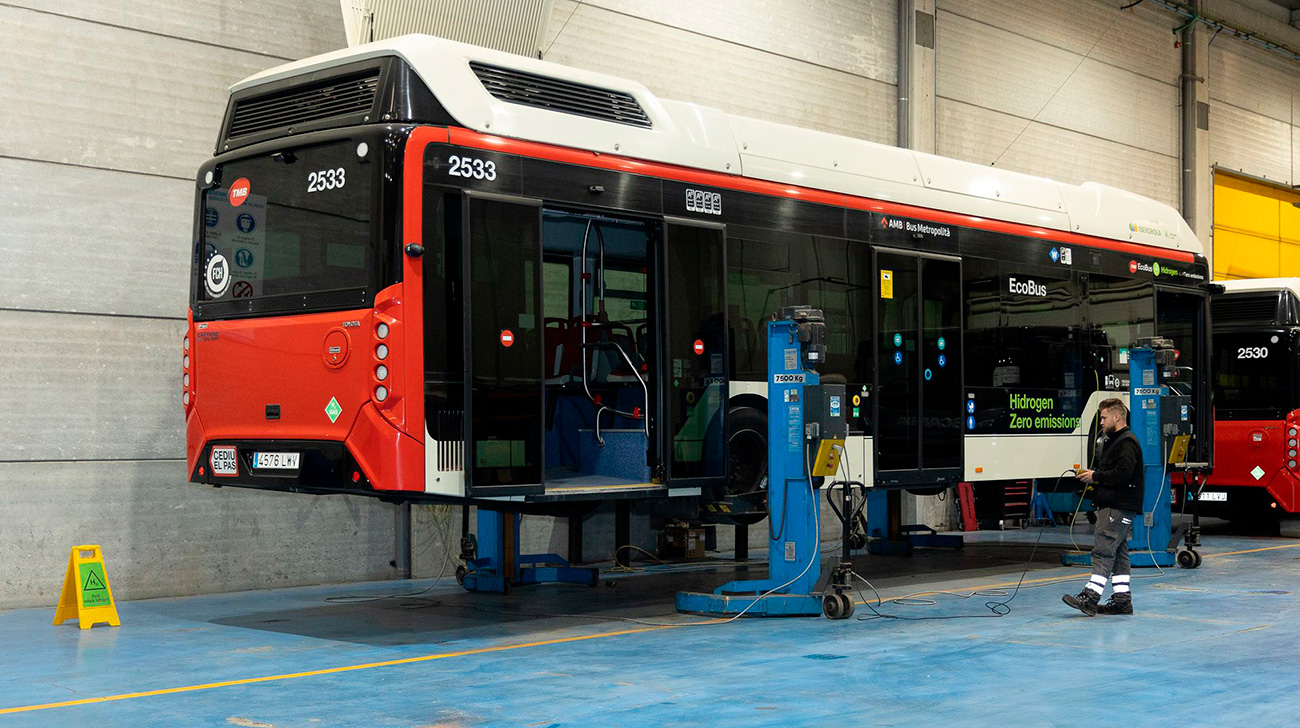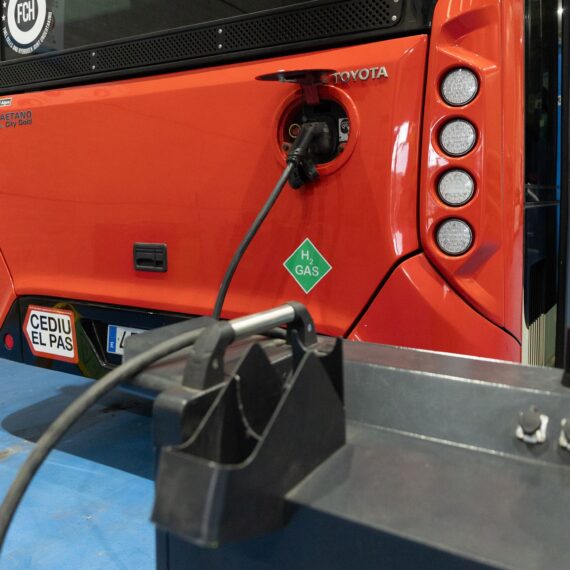
20 May The Future of Industrial Urban Mobility: Innovation and Technology
The Future of Industrial Urban Mobility: Innovation and Technology
The role of industrial vehicles, technical fleets and urban logistics services is increasingly crucial in the efficient operation of modern cities. In this context, the specialised workshops and technical maintenance we provide are essential for industrial urban mobility to move towards a more efficient, safe and sustainable model.
As a benchmark in this field, at Consman we analyse the main trends that are transforming the sector. We take a look into the future to see where we are heading in the area of industrial urban mobility.
Key trends in the urban mobility sector
1. Cleaner and more connected industrial vehicles
Electrification and digitalisation are also reaching the industrial vehicle fleet. More and more manufacturers are opting for electric, hybrid or low-emission industrial vehicles, driven by environmental regulations and Low Emission Zones in urban areas.
For this reason, workshops must keep up to date with new developments in urban fleets in order to modernise our processes and provide service to these new vehicles, which increasingly incorporate electrical parts and systems that are so different from the usual combustion parts.
2. Automation and autonomous vehicles
Autonomous vehicles are becoming more common and are starting to be seen in some urban and closed environments. Their full incorporation into the city will take time, but they represent a radical evolution in terms of safety, efficiency and reduction of human error.
Their autonomous control represents a challenge for the maintenance and servicing of these vehicles, which will require advanced technical knowledge and specialised personnel for inspection.

3. Advanced diagnostics and predictive maintenance
Predictive diagnostics and advanced analytics systems will become more and more sophisticated and will make it possible to detect anomalies before they cause downtime in a more reliable and effective way. Overhauls will become even more efficient and vehicle downtime will be reduced.
This change in diagnostic systems will require an evolution in internal workshop processes and a higher level of specialised technical training.
4. Maintenance adapted to new energies
The great expansion of vehicles that run on alternative energies (electric, CNG, hydrogen) will make it necessary to adapt maintenance processes in urban environments.
At Consman we already have areas adapted to this type of vehicle with specific safety protocols and we have the specific tools for each type of energy, but it is certain that this type of vehicle will become increasingly important and will gradually replace petrol/diesel combustion vehicles.
5. Optimisation of workshop processes
Industrial workshops are also modernising. Digital management of tasks, stock, appointments and technical documentation will enable a more agile workflow, especially when managing urban fleets with a large number of vehicles and high turnover.
What will be implemented most are specialised software for maintenance tracking, digitisation of repetitive administrative tasks and better interconnection with customer or manufacturer platforms for a smoother official technical service.
Transformation to more connected and efficient industrial urban mobility
Technological, regulatory and operational changes in the urban mobility sector are also transforming the activity of workshops, fleet managers and technical services. Adapting to this new reality is not optional, it is a necessity in order to remain competitive and guarantee the operational continuity of commercial vehicles in the city.
At Consman, we are committed to a comprehensive approach where training, process innovation and specialised technical support make the difference.


No Comments